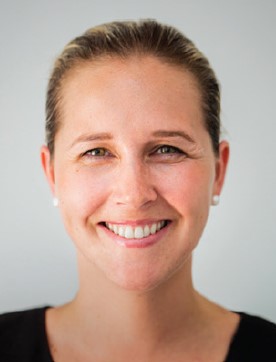

Blog

Anxiety and uncertainty in General Practice: practical tips for the pandemic
Thursday March 3, 2022
 If I were to summarise 2022 in a word, it would be “change”. By the time you read this, everything may be different.
If I were to summarise 2022 in a word, it would be “change”. By the time you read this, everything may be different.
As GPs, we are used to managing a certain level of uncertainty, but today, it is unprecedented.
I am assured our representative bodies are working to collaborate clear and safe community COVID management policies.
Yet many GPs feel in the dark, facing an alarming adversary. Uncertainty, coupled with fear, is a recipe for anxiety.
For some, this manifests as an exacerbation of their clinical condition, or a new anxiety diagnosis. But many GPs are describing an uncomfortable stress state that is a wholly new experience.
We are overworked, exhausted and burnt out by the multifactorial stressors of COVID, and it’s a perfect storm for psychological distress. Sitting on the precipice of Omicron, what can I offer to help my colleagues remain well for our patients and ourselves?
First off, please be kind to yourself about any uncomfortable feelings you may experience. These are not weaknesses, but normal reactions to unprecedented events, especially in environments of sustained stress. Beating yourself up only compounds distress.
Sitting mindfully with your experience and allowing it to “be” can help release tension. Be mindful of your inner dialogue. Speak to yourself as you would to a good friend – with empathy and kindness for your experience.
Even amid external chaos, there are things we can control – our thoughts, behaviours and attitudes. Stay up to date with news from accredited sources. Self-reflection is integral, be it debriefing, journaling, meditation, or a simple stop self-care assessment – “How am I feeling right now? What are my needs?”, perhaps a quick tea or a chat.
Self-care is not selfish; it is essential. Prioritise sleep, exercise and nutrition. We find stability in the continuity of routines.
Watch indulgences; binging on alcohol, food, lay and social media will make you feel worse. Prioritise time to switch off, have a hobby project and schedule social events. Even a short stay-cation can do wonders.
Try to set boundaries at work, home and socially. You can politely inform someone you don’t want to discuss COVID. Worry and rumination are not useful, planning is. Anticipate pandemic requirements such as home isolation, family care, remote work, and staying in touch with colleagues.
Even if stressed, try to be civil and positive. Be open to discussions on wellbeing; disclosing your own experiences creates a psychological safe space. Consider having a “check-in” buddy.
The most vulnerable people may not be clearly visible – your administrative staff, GP registrars, and doctors with medical conditions may need special attention. Weekly staff meetings provide excellent opportunities to share clinical information to ease uncertainty, and for a team check-in/debrief.
There may be times where emotions become overwhelming despite our best efforts at self-care. When your feelings impair your functioning at work, outside or within relationships, recognition and early help-seeking can avert serious difficulties.
Reach out to your personal support network, and professionally, if needed. In the worst-case scenario, if you are not safe, remember telephone services are available for immediate support, and to attend emergency care.
The RACGP GP Support program offers confidential counselling. DRS4DRS also provides a telehealth mental health support service.
There are a number of evidence-based e-mental health services and online groups.
Having your own GP is essential, and formal psychology can teach valuable stress management skills.
DHASWA can help find a GP, psychologist or psychiatrist on our Drs for Drs list.
Finally, DHASWA has a 24/7 Advice Line – (08) 9321 3098 – for any doctor or medical student wishing to speak to a doctor with experience in doctors’ health. We can help you assess your care requirements, access clinical care, or simply debrief on how things are going.

